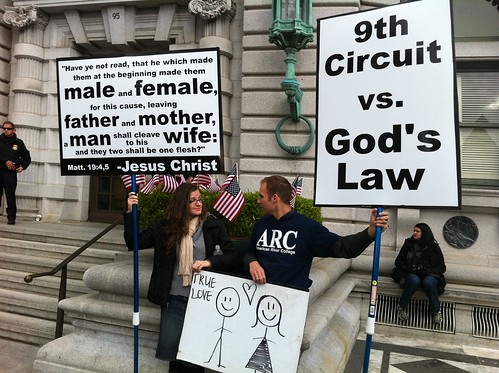Signed and ratified during the time of our founding fathers. Care to find any evidence they objected to this part?
First of all, if you know anything about this document, you know of the huge amount of argument about its validity and what it actually said as there were two treaties written in two different languages, and one didnt quite say what the other did and in fact, the article you refer, Art 11, was absent one version. From the wiki:
Article 11 has been a point of contention in disputes on the doctrine of separation of church and state as it applies to the founding principles of the United States. Opponents claim variously that -- despite full, unanimous ratification by the U.S. Congress in English -- the text which appears as Article 11 in the English translation does not appear in the Arab text of the treaty,
If the two treaties signed were different, one being absent Art 11, how can the treaty be legal and binding?
Secondly, its a moot point anyway as that treaty no longer exists and once broken, have no further bearing or binding upon the nation. And it was broken, by the Pasha of Tripoli less than 5 years after its ratification. A following treaty was negotiated, but the language of Art 11 was not reintroduced and such language has never been on any other treaty the USA has entered into. Which begs the question 'why not'?
Third, this came about 20 years after the founding of our nation, ergo, thus without more study it is unclear how many of the 'founding fathers' were even still around. In fact, only 23 of the 32 sitting senators were even present for its passing. But even Adams himself had previously stated in a letter to Jefferson:
"The general principles on which the fathers achieved independence were. . . . the general principles of Christianity. . . . I will avow that I then believed, and now believe, that those general principles of Christianity are as eternal and immutable as the existence and attributes of God; and that those principles of liberty are as unalterable as human nature"
Sounds pretty clear to me.




 May Prop H8 die.
May Prop H8 die.